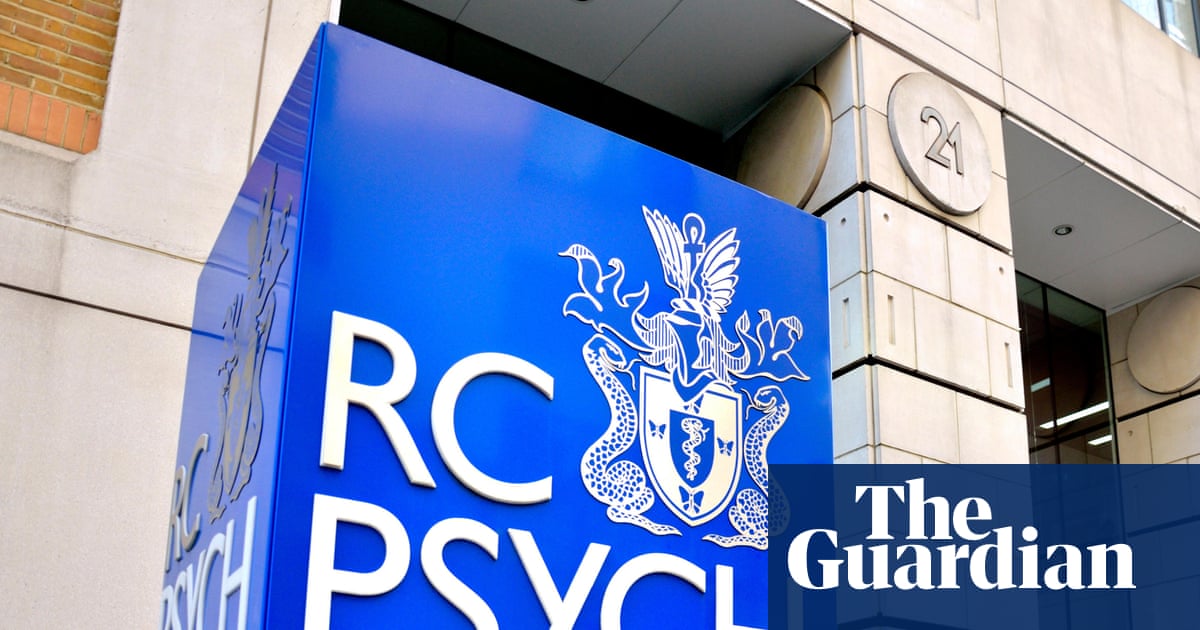Immediate closure of asylum hotels could lead to migrants 'living destitute in the streets', says minister
The immediate closure of asylum hotels could lead to migrants “living destitute in the streets”, a government minister said, as he warned against a “disorderly discharge”.
Health minister Stephen Kinnock told Sky News:
It’s not a question of if we close the hotels, it’s a question of when and how we close the hotels, and what we don’t want to have is a disorderly discharge from every hotel in the country, which would actually have far worse consequences than what we currently have, in terms of the impact that would have on asylum seekers potentially living destitute in the streets.
And I don’t think any one of the communities that are campaigning on these hotels issue want to see that.
So what we are doing is looking to appeal this injunction simply because we’re taking a pragmatic approach to how we want to manage the process, not because we believe that the hotel … per se should stay open.”
Pressed on where the migrants would be moved to if the Bell hotel in Epping were to close, Kinnock said:
We’ve got a whole range of options – disused warehouses, disused office blocks, disused military barracks.
We are looking at every option that we have to manage the discharge, and it’s really important that we do that and put those plans in place, but of course, it’s going to be much more effective if we’re able to do that in a way where we’re controlling the discharge from these hotels.
Later today, we should get the judgment from the three senior judges ruling on whether to overturn a temporary injunction which is to block asylum seekers from being housed at the Bell hotel. It is expected at about 2pm.
In other developments:
-
The Foreign Office in London summoned Russia’s ambassador to the UK, Andrey Kelin, at 1pm, in direct response to the severe damage inflicted on the British Council building in Ukraine, government sources said. The prime minister, Keir Starmer, condemned the attacks as “senseless” and accused Russia of “sabotaging hopes of peace”.
-
Rachel Reeves should levy a new bank tax and urge the Bank of England to halt bond sales to reduce the government’s £22bn-a-year losses from quantitative easing, the IPPR thinktank has argued. In a report called Fixing the Leak, the IPPR’s associate director for economic policy, Carsten Jung, says the Treasury should rein in the costs of QE as public finances are tight.
-
England needs to “wake up” to its faltering infant vaccination programme, experts have warned, as it was revealed that one in five children start primary school unprotected from serious infectious diseases. The government has urged parents to make sure their children are up to date with their vaccines.
-
The Reform party’s promise to abolish policies on equality and diversity is “ludicrous” and threatens to take policing and society backwards, one of the country’s most senior chief constables has said. Serena Kennedy retires on Sunday as the chief constable of Merseyside police, after a tumultuous four years in charge. She criticised politicians including the Reform UK leader, Nigel Farage, for making questionable statements at times of heightened tension, such as immediately after last summer’s Southport riot.
-
A member of the House of Lords asked a senior British diplomat to help a Ghanaian goldmining venture in which he held shares, claiming it was “in the UK national interest”, the Guardian can disclose. The revelation will add to concerns about apparent breaches of parliamentary lobbying rules by Richard Dannatt, a former head of the British army. The peer is already under scrutiny over his lobbying for several companies, leading in two cases to investigations by the Lords’ standards body.
Key events Show key events only Please turn on JavaScript to use this feature
The Scottish Greens will announce the result of its leadership election on Friday.
Current co-leader Lorna Slater, MSPs Gillian Mackay and Ross Greer and activist Dominic Ashmole are seeking to form the new co-leadership team, with the result to be announced at an event in Edinburgh.
Co-leader Patrick Harvie – who has been one of the party’s leaders since 2008 – announced earlier this year he would stand down from the role but continue to be an MSP.

Among the policy pledges outlined by the candidates is universal free bus travel, which was proposed by Greer – who has widely been seen as a contender for the leadership since he was elected to Holyrood at the age of 21.
Mackay – who shepherded landmark legislation placing buffer zones outside abortion clinics through Holyrood – said she believed she can “take the party further and deliver great election results”.
Slater – one of the two only Green members in the UK to serve as a government minister as a result of the Bute House agreement – said the party went from “being a small but effective party to being a significant force in Scottish politics” as she pledged to go further to “build a fairer, more progressive and greener country”.
Ashmole – who has stood for the party at numerous elections but does not hold elected office – said his pitch to members is to put climate change front and centre, urging Scots to “prepare for the worst, strive for the best – and protect what we love”.
Whichever pair wins the final ballot, reports the PA news agency, the leadership team will probably be the ones to lead the party into the 2026 Holyrood election with a view to increasing their MSP cohort from the seven won in 2021.
The government has instructed a contractor to remove certain jobs at an immigration removal centre from a recruitment website after advertisements for floristry and hairdressing tutors emerged, reports the PA agency.
Outsourcing company Mitie, which manages the Heathrow immigration removal centre (IRC) near the west London airport, listed several roles online including a painting and decorating tutor and gym manager at the IRC for salaries that range between £31,000 and £38,000. One of the job descriptions includes responsibilities to deliver workshops in floristry, cake decorating, balloon-craft and arts and craft activities to “provide a safe, secure, stimulating, supportive and productive environment for residents”.
Home Office minister Seema Malhotra said:
We do not believe all these roles are necessary and have told the Home Office to speak to Mitie to remove them.
The government department has not yet clarified which jobs Mitie has been directed to remove, and a number of roles remain listed on the government’s find-a-job portal, reports the PA news agency.
On its website, Mitie said it aims to “treat those in our care with dignity, decency, and respect” and provide an environment for residents to “engage in activities relevant to them”. Health minister Stephen Kinnock said there had been “excessive interpretation” of contractual obligations.
He told LBC:
My understanding of it is, they’re contractually obliged to have some kind of physical exercise, because you want to make sure that people aren’t falling into ill health, because that just makes it even worse for the taxpayer if we’re having to deal with that kind of thing.
But it seems that there’s been an excessive interpretation of those contractual obligations and Seema Malhotra, the immigration minister, I’m very pleased to say, has rapidly responded to this and instructed Mitie to delete those jobs, and that is a good move on her part.
The Heathrow IRC combines Colnbrook and Harmondsworth removals centres and is, according to Mitie, the largest IRC in Europe with a capacity of 965 residents.
The company has been approached by the PA news agency for comment.
Treasury should tax big banks on quantitative easing windfalls, argues thinktank

Heather Stewart
Rachel Reeves should levy a new bank tax and urge the Bank of England to halt bond sales to reduce the government’s £22bn-a-year losses from quantitative easing, the IPPR thinktank has argued.
In a report called Fixing the Leak, the IPPR’s associate director for economic policy, Carsten Jung, says the Treasury should rein in the costs of QE as public finances are tight.
“What started as a programme to boost the economy is now a massive drain on taxpayer money,” he said. “Public money is flowing straight into commercial banks’ coffers because of a flawed policy design. While families struggle with rising costs, the government is … [in effect] writing multibillion-pound cheques to bank shareholders.”
The emergency policy, first enacted in 2009 during the global financial crisis, involved buying up £895bn of bonds from the UK’s banks and, in exchange, crediting them with reserves at the Bank of England.
The Bank is now winding down QE – a process known as “quantitative tightening” (QT) – by selling the bonds at a rate of £100bn a year, but these sales are taking place at a loss.
In accordance with a promise from Alistair Darling, then chancellor, the Treasury bears the financial risks of QE, so these losses hit the government’s finances.
In addition, the higher Bank of England base rate, now set at 4% to combat above-target inflation, means the Bank is paying out higher interest rates on banks’ reserves than it is receiving on the bonds it holds. In total, these losses amount to a £22bn-a-year hit to the public finances, according to the IPPR.
Jung calls for the Treasury to tax the big banks on their QE-related reserves, saying the profits of the big four have more than doubled since before the Covid pandemic.
He says such a policy could bring in £8bn a year and sidestep the Bank’s objections to a widely mooted alternative known as “tiered reserves”, which the Bank’s governor, Andrew Bailey, has argued could interfere with its job of combating inflation.
Immediate closure of asylum hotels could lead to migrants 'living destitute in the streets', says minister
The immediate closure of asylum hotels could lead to migrants “living destitute in the streets”, a government minister said, as he warned against a “disorderly discharge”.
Health minister Stephen Kinnock told Sky News:
It’s not a question of if we close the hotels, it’s a question of when and how we close the hotels, and what we don’t want to have is a disorderly discharge from every hotel in the country, which would actually have far worse consequences than what we currently have, in terms of the impact that would have on asylum seekers potentially living destitute in the streets.
And I don’t think any one of the communities that are campaigning on these hotels issue want to see that.
So what we are doing is looking to appeal this injunction simply because we’re taking a pragmatic approach to how we want to manage the process, not because we believe that the hotel … per se should stay open.”
Pressed on where the migrants would be moved to if the Bell hotel in Epping were to close, Kinnock said:
We’ve got a whole range of options – disused warehouses, disused office blocks, disused military barracks.
We are looking at every option that we have to manage the discharge, and it’s really important that we do that and put those plans in place, but of course, it’s going to be much more effective if we’re able to do that in a way where we’re controlling the discharge from these hotels.
Later today, we should get the judgment from the three senior judges ruling on whether to overturn a temporary injunction which is to block asylum seekers from being housed at the Bell hotel. It is expected at about 2pm.
In other developments:
-
The Foreign Office in London summoned Russia’s ambassador to the UK, Andrey Kelin, at 1pm, in direct response to the severe damage inflicted on the British Council building in Ukraine, government sources said. The prime minister, Keir Starmer, condemned the attacks as “senseless” and accused Russia of “sabotaging hopes of peace”.
-
Rachel Reeves should levy a new bank tax and urge the Bank of England to halt bond sales to reduce the government’s £22bn-a-year losses from quantitative easing, the IPPR thinktank has argued. In a report called Fixing the Leak, the IPPR’s associate director for economic policy, Carsten Jung, says the Treasury should rein in the costs of QE as public finances are tight.
-
England needs to “wake up” to its faltering infant vaccination programme, experts have warned, as it was revealed that one in five children start primary school unprotected from serious infectious diseases. The government has urged parents to make sure their children are up to date with their vaccines.
-
The Reform party’s promise to abolish policies on equality and diversity is “ludicrous” and threatens to take policing and society backwards, one of the country’s most senior chief constables has said. Serena Kennedy retires on Sunday as the chief constable of Merseyside police, after a tumultuous four years in charge. She criticised politicians including the Reform UK leader, Nigel Farage, for making questionable statements at times of heightened tension, such as immediately after last summer’s Southport riot.
-
A member of the House of Lords asked a senior British diplomat to help a Ghanaian goldmining venture in which he held shares, claiming it was “in the UK national interest”, the Guardian can disclose. The revelation will add to concerns about apparent breaches of parliamentary lobbying rules by Richard Dannatt, a former head of the British army. The peer is already under scrutiny over his lobbying for several companies, leading in two cases to investigations by the Lords’ standards body.

 2 months ago
54
2 months ago
54

















































